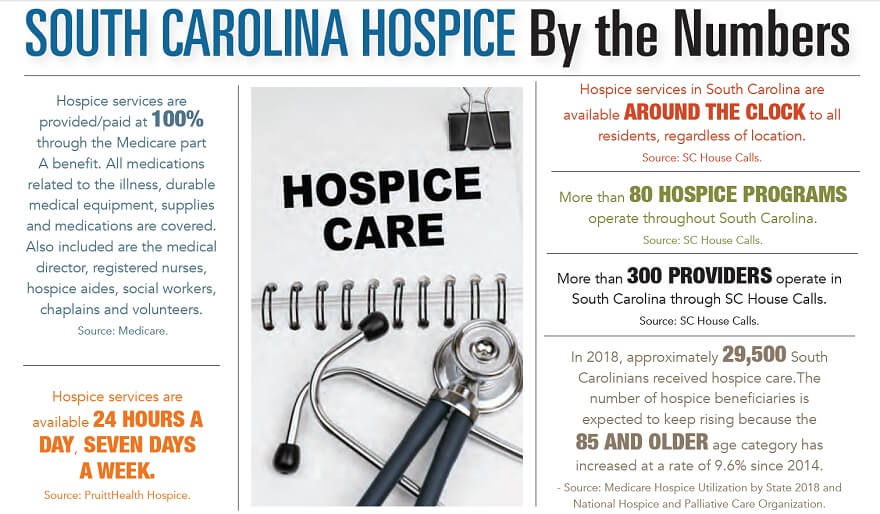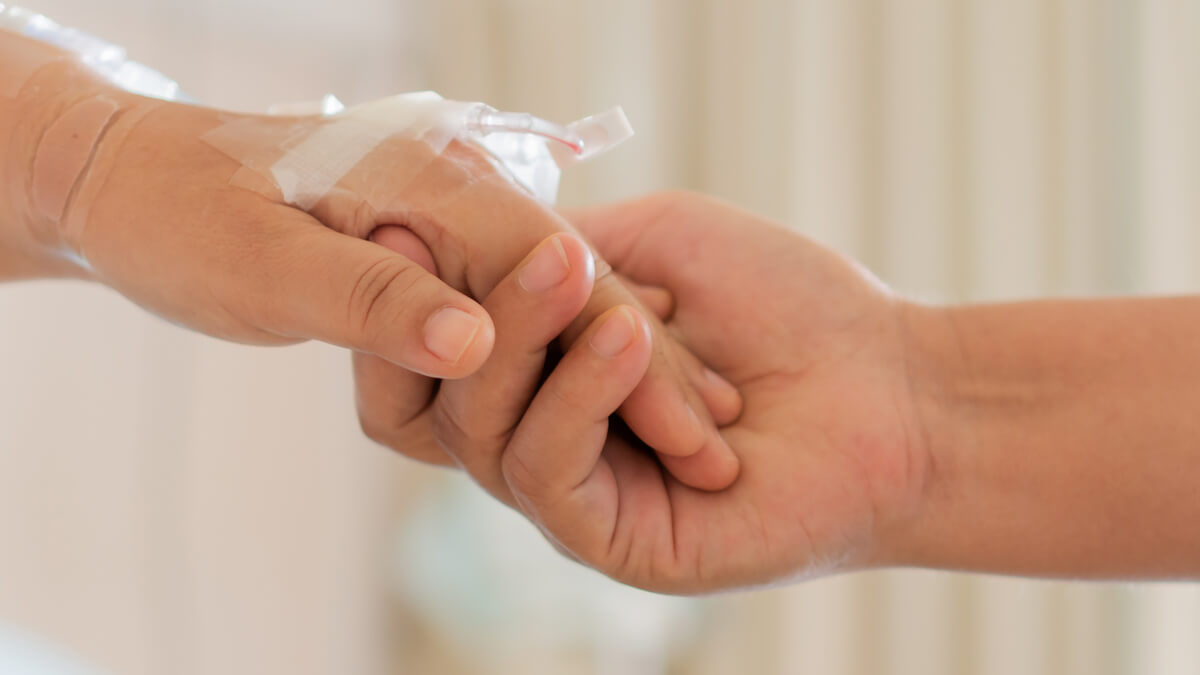Hospice care for a loved one is not something many people want to consider or even think about. Even the word itself can make you feel suddenly helpless to prevent someone you care for from dying.
But if hospice ever becomes a choice you find yourself facing for people close to you here in South Carolina, transitioning them into this kind of care is not likely to be a positive move for them, but it is probably going to be easier to do than you think.
“Many people feel like they are giving up on their loved one (when they use hospice),” said Lynn Brooks, hospice administrator with PruittHealth Hospice in Anderson. “When, in fact, hospice is shown to prolong life due to the management of symptoms, the 24-hour availability of nurses, assistance with personal care, volunteers, social workers, chaplains and the financial support with medications, equipment and supplies.”
For example, imagine that you have a family member who needs these kinds of services, but you aren’t sure who to call or where to start searching. You learn there is a place in Charleston called SC House Calls, which specializes in hospice care and service. You call and ask questions and listen. During the conversation, you learn that SC House Calls is a network of more than 300 medical professionals who provide proactive care for hospice patients throughout the state of South Carolina.
“No matter where in South Carolina you live, we can provide any kind of hospice nurse or volunteer or service that you need and bring it right to your home,” said Deanna Enfinger, director of growth and development with SC House Calls.
She added that any kind of medical testing also can be done on-site.
“If labs, X-rays or ultrasounds are needed in the home, they are typically available for them to order on top of medications,” Enfinger said.
If by now your feelings about hospice have relaxed a little, you might even perk up a bit when you learn that the service won’t cost you anything.
“Hospice is free to patients,” said Theresa Younis, executive vice president of strategic partnerships with Agape Care Group in Spartanburg. “It is a Medicare Part A or Medicaid and is covered by many insurances.”
Indicators for hospice may include:
- Frequent hospitalizations in the past six months;
- Progressive weight loss;
- Increasing weakness, fatigue and sleepiness;
- Changes in cognitive and functional abilities;
- Compromised activities of daily living such as eating, bathing, dressing, walking and continence;
- Deteriorating mental abilities;
Younis added that because of its association with death, hospice is too often overlooked.
“The regret I hear most often is, ‘I wish we had hospice sooner,’” she said. “Hospice may be considered a last resort instead of an invaluable resource to enhance the quality of life for the caregivers as well as the patient. But patients and families access the full benefit when used for months rather than days or weeks.”
So if you and the family physician agree that hospice is the best choice, what happens then?
“You or another family member will receive a call or visit the same day for a family education visit from one of our community relations representatives to explain the hospice benefit and services,” Brooks said. “This will be followed by a visit from the nurse on the same day to evaluate the needs of the patient and to order medications, supplies and equipment. At this point, a plan of care will be developed.”
Even if you are still somewhat apprehensive about the hospice process, nurse practitioners such as Melanie Scianna will bring extra care and knowledge through their words and personal comfort to put you at ease.
“Each patient and family are different and deserve to be heard,” said Scianna, who provides both palliative and hospice care to patients in the Summerville and Charleston regions. “Compassion and empathy go a long way, and it is important to let the family know you are walking with them.”
Scianna, Brooks, Younis and Enfinger all said that despite any qualms that often come with hospice, the first step toward embracing it is trust.
“There are many people who don’t take hospice because they don’t understand its benefits,” Enfinger said. “But we refer to hospice every day. And you get a benefit of hospice when you need it.”
By L. C. Leach III

